The Future: Strategy's Top Designers Discuss What's Next
Four of the biggest names in strategy games sound off about the future of the genre.
Strategy games turn our leisure time into wartime, our keyboards into command centers, and our imaginations into machinations. They've made us generals in history's best battles, warlords over fantasy land conflicts, fleet commanders in outer space, and mayors of sprawling cities. Sometimes they go small, giving us just a few units; other times they go big, giving us a few hundred. Some have complex goals and resources to manage, others only deal in death and destruction. So where will they go next?
We put that very question in front of four very prominent strategy game designers. Louis Castle is one of the cofounders of Command & Conquer creator Westwood Studios, and joined EALA to work on later editions. Sid Meier is the mastermind behind one of the most successful strategy series of all time, Civilization. Chris Taylor designed the award-winning massive real-time strategy game Total Annihilation, and his studio, Gas Powered Games, built some of the largest battles the genre has ever seen in Supreme Commander. And Will Wright is responsible for one of the most popular (and least violent) strategy games of all time in SimCity, then pitted us against the trials and tribulations of running a household in The Sims.
Each designer has either released a new strategy game in 2008, or is working on a soon-to-be-released one. Each was asked to contribute his thoughts on the state of strategy games—where they are now, and where they are going.
Louis Castle | Vice President, EALA
GameSpot: Let's start with Command & Conquer. What were you looking to accomplish with this franchise? Where do you think C&C falls in the realm of strategy games, and what has it added to the world of strategy?
Louis Castle: Command & Conquer was Brett [Sperry]'s effort to build on the great game mechanics invented with Dune II with a universe that was very accessible. The decision to choose a near-future setting instead of the original fantasy setting, allowed for the world politics, technology, and weaponry to be just beyond the known world but easily imaginable as an extension of what was happening at the time. The truly epic storyline was intended to immerse the player into the world as an active participant on the world stage from the comfort of their computer screen. From the moment the player installed Command & Conquer, they were in our universe. CD-ROMs had just arrived so we worked hard to deliver full-screen AV from a single-speed CD-ROM to further support the idea that the game was just a portal into the world.
Over time Command & Conquer has evolved into the real-time strategy brand of sport with fast and furious gameplay. The fans continue to ask us for a fair gaming framework that focuses on skill and quick decision making. The pacing and heightened sense of action are hallmarks of great Command & Conquer games and I know people aren't going to be disappointed when they play Red Alert 3.
GS: You and your team have made a name for yourselves creating strategy games. Why have you focused on this genre of games? What do they offer that other genres don't?
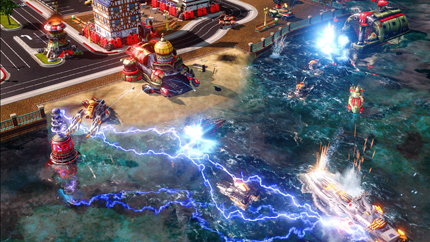
LC: The Command & Conquer team at Westwood essentially invented what we think of as RTS games with the creation of Dune II. The continued focus on the various fictions within the Command & Conquer universe has been a labor of love as the franchise has moved from Las Vegas to Westwood Pacific in Irvine, California, and now to EALA. The teams that build these games love the genre and genuinely try to bring something new to every title to help evolve the experience and bring in new players while delighting the existing fans. I strongly feel that the emotional experience a player has when playing a great RTS game is one that every consumer would enjoy. Making long-term, short-term, and immediate decisions while skillfully executing your plans exercises many of a player's abilities simultaneously and ought to be universally appealing.
I do think the genre suffers from an inaccessibility problem that happens as all gaming genres evolve. To keep longtime players engaged and challenged new features, strategies and tactics are added. The sum of those evolutions creates an environment which is very intimidating. One of our chief goals on the console RTS efforts was to tap into the well-accepted FPS control schemes to lower the barrier to entry while still offering a full-featured RTS experience for the well-versed fans. With Command & Conquer 3, Kane's Wrath, and now Red Alert 3, I feel the team has done a great job of continuing to lower the threshold while expanding the depth and scope.
GS: Let's imagine you had unlimited resources, manpower, time, and maybe a magic wand or two to create your idea of the perfect strategy game, the ideal game that's always been at the back of your mind. Tell us about this strategy game and how it would work.
LC: I would use the player's gaming device as a convincing portal into a very believable conflict that purports to be happening in real time with their world. Thinking of the monitor and audio-plus-video as simply windows into a real conflict would be the ultimate in immersion for me. I imagine an experience similar to the one Ripley has in the command vehicle of Aliens, but with even better com technology. That would give me the ultimate strategy fantasy of both coordinating the big decisions while participating in the action.
GS: Give us your thoughts on the current state of strategy games. How have they grown, developed, or otherwise changed? How have they stayed the same?
LC: I answered a bit of this above, but overall I think the state of strategy games is that the genre has drifted back toward the turn-based strategy games of the 1990s. I feel fans need to be forgiving of new ideas that might not have all the hotkeys or features of the last game if the genre is to take another evolutionary step. I still find it is hard to describe the thrill of RTS to people who have not played one. That needs to change in my opinion. In summary, RTS games have developed more complexity, kept the same base mechanics, and have become burdened by incremental evolution. The genre needs a discontinuous event.
GS: Are there new directions you see strategy games headed in? What trends do you see in the genre, and in gaming in general, as being crucial to strategy games now, and influential to future strategy games? What do strategy games need to do in order to survive, and to thrive?
LC: I see most strategy games heading in the same direction they have for years. I'm concerned that some attempts at "lower barrier to entry" games are simply dumbed-down, basic RTSes with a big license attached. To truly reach a new audience the essence of the entertainment offering needs to evolve. Clear concepts that are intuitive to play and reveal complexity over time will eventually take the genre to another level in the way open-world design have evolved shooters and adventure games. To thrive, more people have to see strategy games as ways to enjoy incidental gaming without an upfront massive commitment to dedicated time and learning.
GS: In terms of accessibility, do you think strategy games will become more user-friendly or increasingly complex? Will the PC continue to be a stronghold for the genre or will strategy become more popular on consoles and handhelds?
LC: Yes, more user-friendly and more complex. Until we reinvigorate the genre the PC is likely to remain the stronghold for perpetuating the existing style of the entertainment experience we call strategy games.
GS: Finally, do you have anything else to add about strategy games, or any other general thoughts you'd like to share about games or anything else?
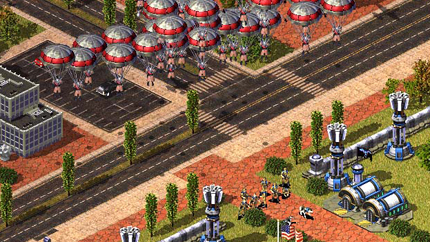
LC: That's a pretty open question! I would add that all games, regardless of genre, need to consider the exciting reality that almost everyone capable of buying them now plays video games of some type. That both allows for great new opportunities to reach very large audiences and, simultaneously, allows for very specific niche-based products. The real key will be reaching the economic balance that allows for both to exist. It is a bit odd that games which have the capacity to reach the largest audiences are often the most poorly funded, relying heavily on massive marketing budgets or very expensive existing brands to make their offering known. Conversely, games which continue to target ever-narrowing audiences are committing more and more resources to try and be the one product that takes most of that narrow consumer base. I'm probably preaching to the choir, but if you're reading this you probably play games, so go and find a friend or relative who doesn't and introduce them to your entertainment of choice. And in the meantime, please support your favorite games and gamemakers by buying the original game instead of renting or buying used. I know it's expensive, but believe me when I say that all the people who work hard in this industry truly appreciate your patronage and sincerely want to make products that are worthy of your support and investment.
And while I haven't been personally involved in the day-to-day development of Red Alert 3, I have been definitely checking in from time to time and have been lucky enough to be able to play it. The team at EALA under the leadership of Mike Verdu and Chris Corry have really done a tremendous job in living up to a series that is so beloved and holds a special place with me personally.
Sid Meier | Creative Director, Firaxis Games
GameSpot: Let's start with your latest project, Civilization Revolution. What were you looking to accomplish with it? Where do you think Civ Rev falls in the realm of strategy games, and what does it add to the world of strategy?
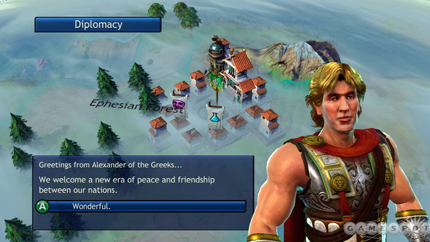
Sid Meier: As with all of our games, the overall goal was to deliver a fun experience to players. Strategy games were not thriving on consoles and we felt that the turn-based nature of Civilization could be the answer to a successful console strategy game. Fan response, positive reviews, and strong sales numbers indicate that we're on to something. Civilization Revolution gives players a chance to experience all of the depth and addictive gameplay of Civ in a more intuitive and visually compelling world. We're really happy with the results.
GS: You and your team have made a name for yourselves creating strategy games. Why have you focused on this genre of games? What do they offer that other genres don't?
SM: We really enjoy playing strategy games, which is the driving force behind our desire to make them. The games we make offer players a chance to do or become something great through decisions they make as they play the game. We want players to be the main character and determine the course of the game through choices they make--which we believe delivers the most exciting and fun experience to them and keeps them coming back for more.
GS: Let's imagine you had unlimited resources, manpower, time, and maybe a magic wand or two to create your idea of the perfect strategy game, the ideal game that's always been at the back of your mind. Tell us about this strategy game and how it would work.
SM: I'm fortunate to have been able to make the games I've wanted to make over the past 25-plus years. Whether or not any of them are "the perfect strategy game" is up to the players to determine. Rather than keeping ideas in the back of my mind, I've been able to bring them to life using the technologies available to us at the time. I'd have to say Civilization Revolution is a big step forward for the Civ franchise and gave us a chance to create a strategy game for the consoles that really delivers. Fortunately, 2K Games was very supportive of the endeavor and provided us the time and resources to do it right. I still have lots of game ideas brewing, so stay tuned for more!
GS: Give us your thoughts on the current state of strategy games. How have they grown, developed, or otherwise changed? How have they stayed the same?
SM: The basic tenets of strategy games have remained over the years in terms of giving the player some level of control over the experience through decisions they make as they play. All games have evolved in terms of their audio/visual presentation. Strategy games have certainly benefited from the ability of developers to create a more immersive experience for players through graphics and sound that bring the gameworld to life. It's an exciting time to be making games.
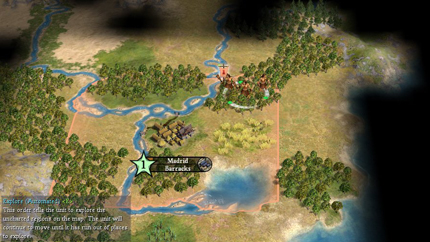
GS: Are there new directions you see strategy games headed in? What trends do you see in the genre, and in gaming in general, as being crucial to strategy games now, and influential to future strategy games? What do strategy games need to do in order to survive and to thrive?
SM: Along with the comments I made in the previous answer about improved graphics and sound, I think it's important to make strategy games accessible to all kinds of gamers. Creating a user interface that's easy to navigate and finding ways to make sure players are involved and having fun within the first couple of minutes of gameplay are crucial. It doesn't mean that we need to make strategy games less challenging; it means that we need to reduce the learning curve and get players into the game quickly, and then offer layers of depth they can access as they are ready.
GS: In terms of accessibility, do you think strategy games will become more user-friendly or increasingly complex? Will the PC continue to be a stronghold for the genre or will strategy become more popular on consoles and handhelds?
SM: Our goal with Civilization Revolution was to make it more "user-friendly" by creating a UI that was easy to navigate and still offer layers of complexity that players can access as they are ready for a more challenging experience. We feel that strategy games can and should be played on any platform that will deliver a fun experience to players. We created Civ Rev specifically for consoles and handhelds, and recently released Civilization IV: Colonization exclusively for the PC. Both games have received great reviews and are selling well, so we have a very positive outlook on strategy games in general.
GS: Finally, do you have anything else to add about strategy games, or any other general thoughts you'd like to share about games or anything else?
SM: Along with strategy games, I enjoy creating and playing a wide variety of games on all kinds of devices. I'm a big fan of Guitar Hero, Rock Band, and Gran Turismo, for example. I'm still a diehard strategy gamer, though, and am really looking forward to Blizzard's Starcraft 2 (the original is one of my all-time favorite games).
Chris Taylor | Gas Powered Games, Founder
GameSpot: Let's start with Demigod. What are you looking to accomplish with it? Where do you think Demigod falls in the realm of strategy games, and what does it add to the world of strategy?
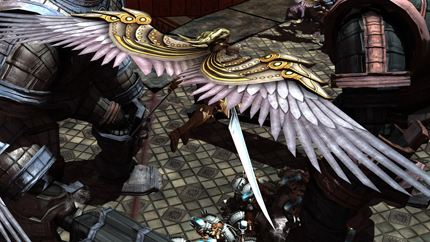
Chris Taylor: For us, we always set out to make something new. Even if there are many familiar elements in it, we want to create an experience that the player has never had before. Demigod fits in someplace between RTS and RPG, but more toward the RTS end of the spectrum. We wanted to blow people's minds with an intensity in combat that could only be dreamed about a few short years ago with massive units, super-high production values, and spectacular special effects, not to mention how the strategic zoom feature changes the way players visualize the world.
GS: You and your team have made a name for yourselves creating strategy games like Supreme Commander. Why have you focused on this genre of games? What do they offer that other genres don't?
CT: I think we have focused on this kind of game because GPG attracts people who were fans of Total Annihilation, and to some extent Supreme Commander, to the company, and because it's a genre that I truly love. I think it's fair to say that strategy games tickle a part of the brain that other games don't, and require a nice balance between brawn and brains. Like I read on the USS Enterprise (the US Carrier), "Fortune favors boldness." That sums it up nicely.
GS: Let's imagine you had unlimited resources, manpower, time, and maybe a magic wand or two to create your idea of the perfect strategy game, the ideal game that's always been at the back of your mind. Tell us about this strategy game and how it would work.
CT: I think the perfect strategy game is where I get to play with any technology I want and spend several years experimenting with gameplay mechanics. I would push every traditional restriction to the max and see if that makes the game fun or not. I would probably focus most of my effort around multiplayer and bringing people together online. Sorry I can't actually provide you with a game design document, you'd need to give me a couple of weeks at least!
GS: Give us your thoughts on the current state of strategy games. How have they grown, developed, or otherwise changed? How have they stayed the same?
CT: Besides incredible graphics, great new interface paradigms, better AI, and online connectivity... I think that game designers have really tried to simplify the experience so that they can attract more players. Chess is a great example, as it is easy to learn and hard to master, and is still as popular today as it ever was. I think we can be inspired by this and know that it's not just about cramming features into the game to give the player more options.
GS: Are there new directions you see strategy games headed in? What trends do you see in the genre, and in gaming in general, as being crucial to strategy games now, and influential to future strategy games? What do strategy games need to do in order to survive and to thrive?
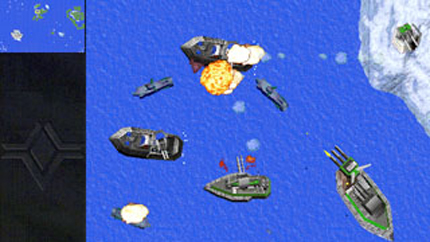
CT: First of all, the online aspect is huge, and we need to fully embrace this in games like Demigod. We need to make sure games are easy to learn and offer a great experience for new players and experienced players alike. We need to make sure that our games play on a wide range of target hardware, are well tested, and of the highest production values. We need to make almost every aspect of the experience smooth and inviting, as you don't get a second chance in today's competitive market. And most of all, you have to deliver a new experience, or you won't stand out from the crowd, and because strategy is still one of the most popular genres on the PC today, you have a lot of competition out there that wants to hammer slam your piece of the market!
GS: In terms of accessibility, do you think strategy games will become more user-friendly or increasingly complex? Will the PC continue to be a stronghold for the genre or will strategy become more popular on consoles and handhelds?
CT: I definitely think that strategy games will be increasingly user-friendly, this is a trend we are already seeing across the board. And for the foreseeable future I believe that that PC will be the place for lovers of the genre to come together to enjoy the best games made.
Having said that, anything is possible, and we should be prepared to defend our turf on the console if the market moves in that direction.
GS: Finally, do you have anything else to add about strategy games, or any other general thoughts you'd like to share about games or anything else?
CT: The future is very bright for gamemakers and game players, and though that last 20 years was mind-blowing in so many ways, the next 20 is going to be a thrill ride unlike anything we could have imagined... Fasten your seatbelts!
Will Wright | Cofounder, Maxis
GameSpot: Let's start with Spore. What were you looking to accomplish with it? Where do you think Spore falls in the realm of strategy games, and what does it add to the world of strategy?
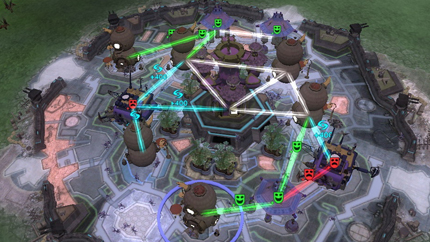
Will Wright: I think one of our primary goals with Spore was to make it accessible to a broad group of people. Because Spore spans so many different gaming genres, it was important to consider how someone not familiar with a particular game style would deal with it on the first play-through. Strategy gaming is perhaps the most broad genre in gaming when you consider what is typically considered in that category. In some sense you might think of Spore as a strategy game that's bookended with action on the front end (cell and creature stages) and something more of an MMO/RPG style on the backend (space).
GS: You and your team have made a name for yourselves creating strategy games. Why have you focused on this genre of games? What do they offer that other genres don't?
WW: I try not to think too much in terms of genre: I prefer to focus more on theme and subject. When I work on a game I immerse myself in the subject and then work my way trying to figure out how to make that subject into a fun toy. I think some would consider my games to be more on the simulation side of things since they tend to represent real-world systems. The strategy feel I think is more of a player view of the game, it's the verb that players are approaching the simulation with.
GS: Let's imagine you had unlimited resources, manpower, time, and maybe a magic wand or two to create your idea of the perfect strategy game, the ideal game that's always been at the back of your mind. Tell us about this strategy game and how it would work.
WW: Whenever I get a question like this I'm at something of a loss. I really don't think there is an "ultimate" strategy game, just like I don't think there's an ultimate movie or book. What makes these forms interesting to me is their potential diversity. I think there many "great" strategy games and I find that to me they share some aspects. One of the aspects I've always found interesting is that my favorite strategy games (like Civilization and Advance Wars) are games that I continue to play even when I step away from the screen. When I'm in the middle of an especially involved battle I find that I'm still thinking through possible moves and strategies in my imagination and simulating possible outcomes. To me that's one of the signs of a great strategy game.
GS: Give us your thoughts on the current state of strategy games. How have they grown, developed, or otherwise changed? How have they stayed the same?
WW: Strategy games have had an interesting trajectory over the years. When I first got into gaming (early '80s, Apple II) most of the games were either very deep, turn-based strategy (Avalon Hill conversions and such) or very simplistic action/arcade. As more gaming genres appeared strategy games became something more of a niche market. The in the early '90s there was something of a renaissance of strategy with games like Populous, SimCity, and Civilization. These games weren't just conversions of previous military history board games and appealed to a much broader group of players. Over the next decade, gaming got really into the graphics arms race and 3D became the norm. Over the last few years we've seen an even greater broadening in the demographics of our customers as well as a diverse set of new platforms (Wii, iPhone, DS). I think we're in the process now of seeing the next step in the evolution of strategy games as they move onto these new platforms and target more casual players.
GS: Are there new directions you see strategy games headed in? What trends do you see in the genre, and in gaming in general, as being crucial to strategy games now, and influential to future strategy games? What do strategy games need to do in order to survive and to thrive?

WW: One of the trends in gaming that interests me moving forward is what you might call interstitial gaming. That is, games that are played in small, bite-sized chunks (many times on a mobile device such as a DS or iPhone, or perhaps over the Web) of a few minutes at a time. One thing I've found is that this tends to favor turn-based games. I find it hard to jump in and out of a quick action experience but for a turn-based game it has a natural fit (the length of a turn, usually). When RTS games came out I remember many thinking it was the death knell for what was previously a turn-based landscape of strategy games. I'm glad to seeing them making a comeback.
GS: In terms of accessibility, do you think strategy games will become more user-friendly or increasingly complex? Will the PC continue to be a stronghold for the genre or will strategy become more popular on consoles and handhelds?
WW: As I said previously, I think handhelds are fertile new ground for strategy games into the future. Console games still seem to me to be driven primarily by graphics and action (which plays to their strengths). I do think strategy games now have a golden opportunity to diversify into both more casual and deeper directions. Ideally I'd like to see a ramp of complexity so that casual players can get into strategy gaming with simple experiences but over time graduate to deeper games.
GS: Finally, do you have anything else to add about strategy games, or any other general thoughts you'd like to share about games, or anything else?
WW: Since I was a kid strategy games have always been my favorite form (starting with the board game Go). It's been really fun watching (and playing) them through the last 25 years because they've advanced so much once computers showed up (compared to the previous four years or so). I can't wait to see where they go next.
Are handheld strategy games the future? And will the genre become more accessible, more complex, or both? You've heard what four great designers think, now have your say!
Got a news tip or want to contact us directly? Email news@gamespot.com




Join the conversation